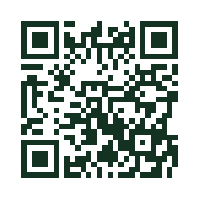Abstract
The article reports on research that investigated the image of teachers held by school learners. Based on a conceptual-theoretical distinction between the ideal teacher, the totally effective teacher and the typically excellent teacher, it was assumed that learners would focus on the first, which is a mental construct, and not on the third, which refers to a flesh-and-blood person actually found working in classrooms. They would not be aware of the discrepancy existing between the ideal teacher and the actual typically excellent teacher. A hundred learners in each of England, Latvia, Greece, Serbia, Slovenia, Bulgaria, Turkey, Pakistan, South Africa and Mexico were asked to write a one-page essay on the following topic: ‘What does a typical teacher look like?’ The investigation confirmed the correctness of the assumption. Despite clear instructions to describe a typical teacher, many respondents from all 10 countries described what they regarded as the ideal teacher. There seems to be a discrepancy between what learners want in a teacher (the ideal teacher) and what they actually have (the typical teacher). It is also possible that the lack of exposure to truly transformative teachers may in many instances lead to ineffective education. This may be one of the causes of problems with learner discipline in school that has thus far been overlooked in the scholarly pursuit to get to the root of problems with learner discipline, possibly because it does not fit neatly into the widely used model of categorising the causes of problems with learner discipline in schools.Copyright information
- Ownership of copyright in terms of the Work remains with the authors.
- The authors retain the non-exclusive right to do anything they wish with the Work, provided attribution is given to the place and detail of original publication, as set out in the official citation of the Work published in the journal. The retained right specifically includes the right to post the Work on the authors’ or their institutions’ websites or institutional repositories.
Publication and user license
- The authors grant the title owner and the publisher an irrevocable license and first right and perpetual subsequent right to (a) publish, reproduce, distribute, display and store the Work in any form/medium, (b) to translate the Work into other languages, create adaptations, summaries or extracts of the Work or other derivative works based on the Work and exercise all of the rights set forth in (a) above in such translations, adaptations, summaries, extracts and derivative works, (c) to license others to do any or all of the above, and (d) to register the Digital Object Identifier (DOI) for the Definitive Work.
- The authors acknowledge and accept the user licence under which the Work will be published as set out in https://creativecommons.org/licenses/by/4.0/ (Creative Commons Attribution License South Africa)
- The undersigned warrant that they have the authority to license these publication rights and that no portion of the copyright to the Work has been assigned or licensed previously to any other party.
Disclaimer: The publisher, editors and title owner accept no responsibility for any statement made or opinion expressed by any other person in this Work. Consequently, they will not be liable for any loss or damage sustained by any reader as a result of his or her action upon any statement or opinion in this Work.
In cases where a manuscript is NOT accepted for publication by the editorial board, the portions of this agreement regarding the publishing licensing shall be null and void and the authors will be free to submit this manuscript to any other publication for first publication.
Our copyright policies are author-friendly and protect the rights of our authors and publishing partners.

